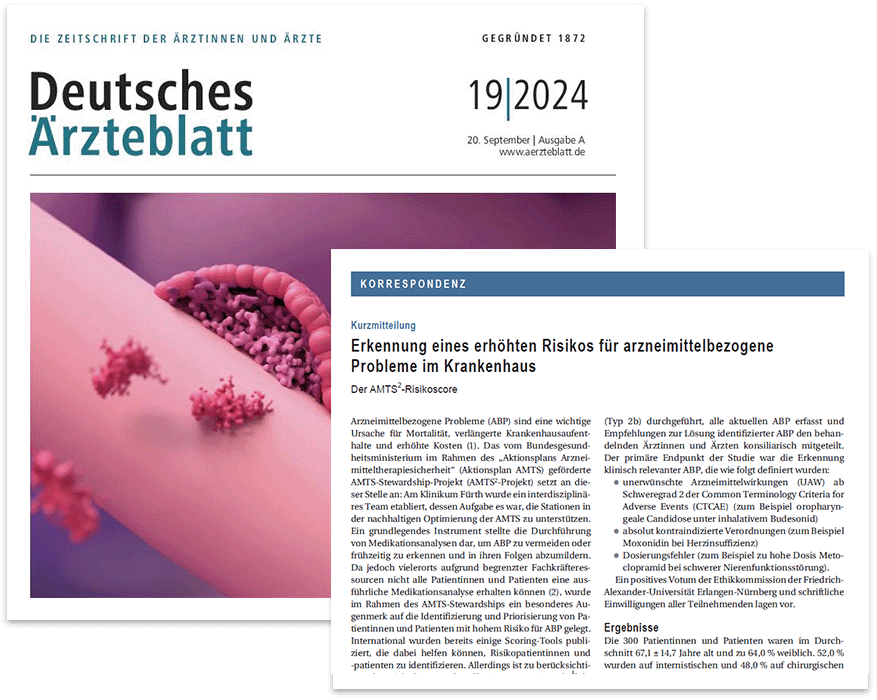Deutsches Ärzteblatt reports on Study with Expert Christine Schnitzer
Deutsches Ärzteblatt published an article in its latest September issue about the successful AMTS Stewardship Project conducted at the Klinikum Fürth from 2020 to 2022. The goal of the study was to improve drug therapy safety (AMTS) in everyday clinical practice. Our AMTS expert, Christine Schnitzer, was part of the interdisciplinary team led by Prof. Dr. Harald Dormann and Prof. Dr. Renke Maas. After working as the head of the hospital pharmacy at Klinikum Fürth, Christine now enriches our PGXperts team with her pharmaceutical expertise and dedicated commitment.
The project, funded by the Federal Ministry of Health as part of the Action Plan for Drug Therapy Safety focused on identifying and prioritizing patients at high risk for medication-related problems (MRPs). Using the newly developed AMTS² risk score, medication analyses were conducted for 300 patients across five internal medicine and surgical wards at Klinikum Fürth, with all MRPs being documented and solution recommendations provided.

Where our PGXperts Solutions step in
Find out more about PGXperts PRiM!
Read the full article here for exciting details about the study (in german):

